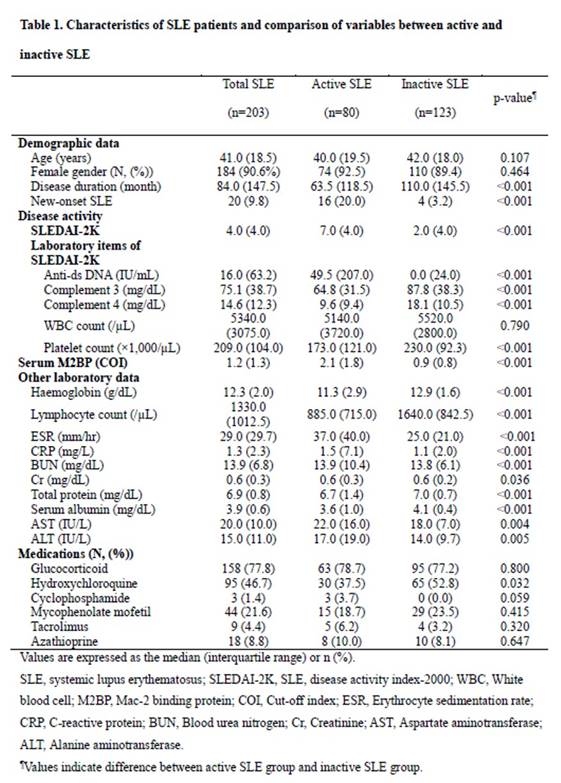Session Information
Date: Sunday, November 5, 2017
Title: Systemic Lupus Erythematosus – Clinical Aspects and Treatment Poster I: Biomarkers and Outcomes
Session Type: ACR Poster Session A
Session Time: 9:00AM-11:00AM

Disclosure: S. S. Ahn, None; Y. Park, None; S. M. Jung, None; J. J. Song, None; Y. B. Park, None; S. W. Lee, None.
To cite this abstract in AMA style:
Ahn SS, Park Y, Jung SM, Song JJ, Park YB, Lee SW. Serum Wisteria Floribunda Agglutinin-Positive Mac-2-Binding Protein Can Reflect Systemic Lupus Erythematosus Activity [abstract]. Arthritis Rheumatol. 2017; 69 (suppl 10). https://acrabstracts.org/abstract/serum-wisteria-floribunda-agglutinin-positive-mac-2-binding-protein-can-reflect-systemic-lupus-erythematosus-activity/. Accessed .« Back to 2017 ACR/ARHP Annual Meeting
ACR Meeting Abstracts - https://acrabstracts.org/abstract/serum-wisteria-floribunda-agglutinin-positive-mac-2-binding-protein-can-reflect-systemic-lupus-erythematosus-activity/

